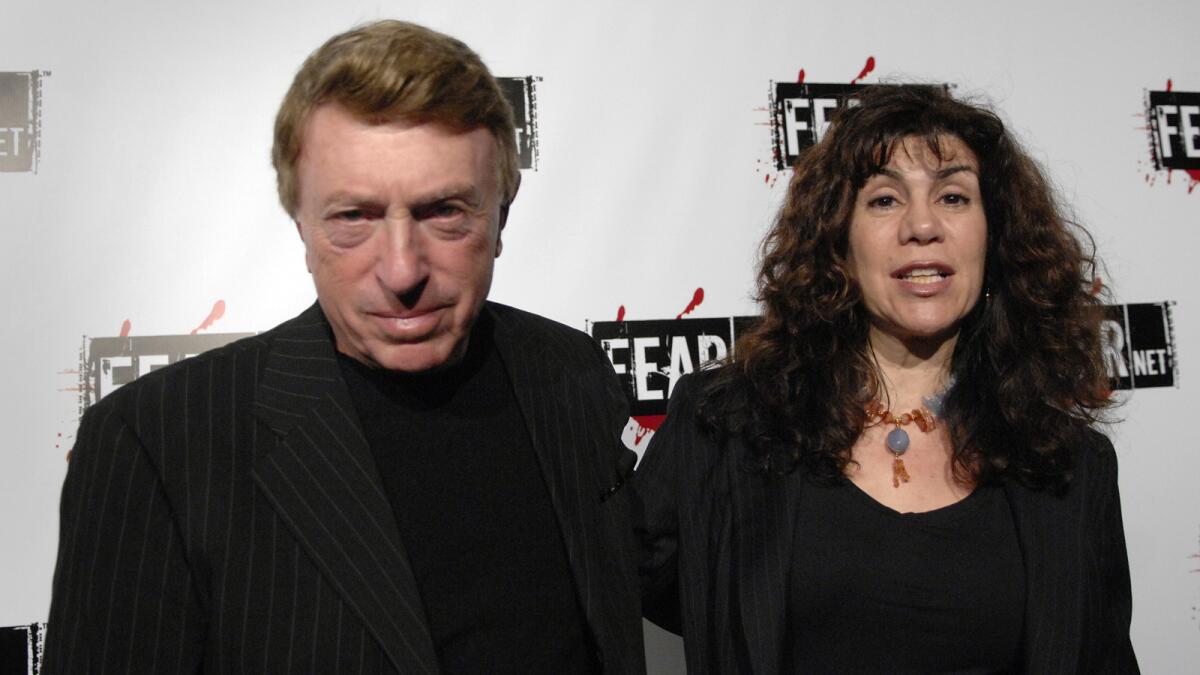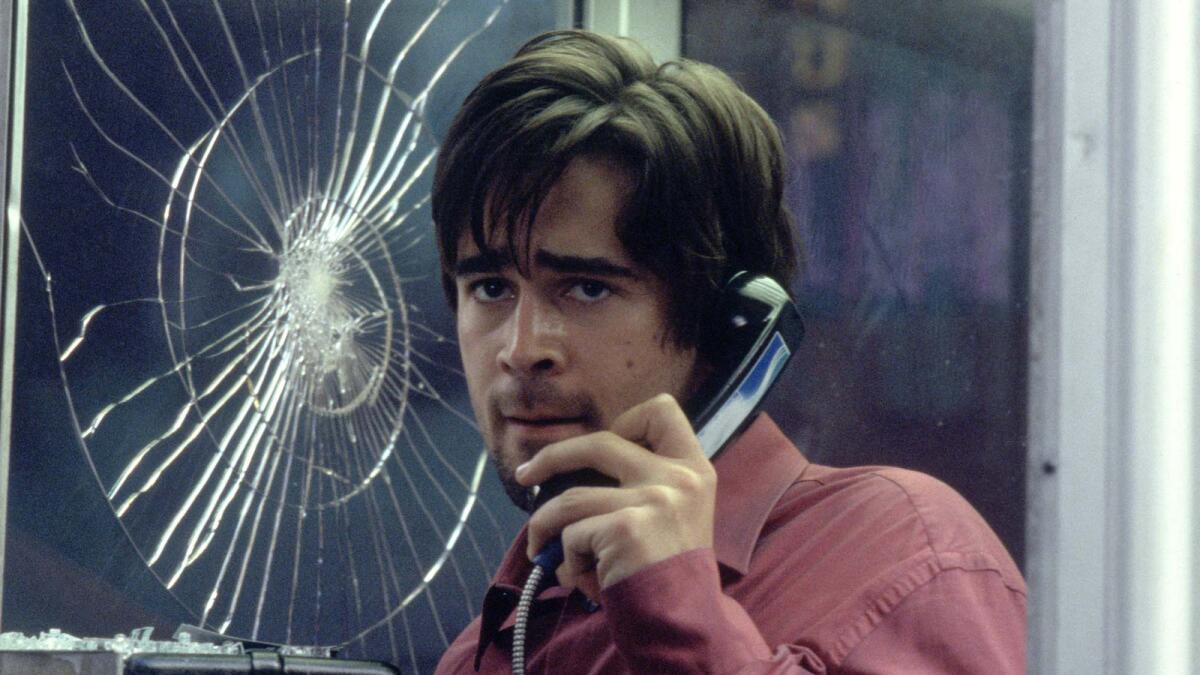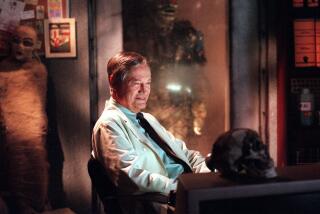Appreciation: Larry Cohen, the genre director who steadfastly avoided the generic

The âNew Hollywoodâ era of the late 1960s and early â70s has inspired shelves of showbiz history books about how visionary filmmakers such as Martin Scorsese, Francis Ford Coppola, Brian De Palma, George Lucas and Steven Spielberg fused their personal experiences with the stuff of old B-movies, pioneering a vital new era in American cinema.
This was Larry Cohenâs story too. It just hasnât been told as often.
Cohen, who died Saturday, directed about half a dozen movies that pulp connoisseurs know well: âBlack Caesar,â âItâs Alive,â âQ,â âThe Stuff,â âThe Ambulance,â âOriginal Gangstasâ and more. He made monster movies and mobster movies, science fiction and shoot-em-ups. Sometimes â as in 1976âs gonzo âGod Told Me Toâ â he chopped up multiple genres into a rich, bloody hash.
Like George Romero, John Carpenter, Tobe Hooper, Joe Dante and a handful of other drive-in maestros, Cohen made the most of minuscule budgets: writing, directing and producing pictures that were unabashedly trashy, but suffused with passion and perspective.
Itâd be doing Cohen a disservice to say he made masterpieces. Even his best films feel like theyâre held together by duct tape and B-roll, stretched to feature length with the help of whatever his editors could sweep up off the cutting-room floor. Panning âGod Told Me To,â Roger Ebert wrote, âThere were times when I thought the projectionist was showing the reels in random order, as a quiet joke on the hapless audience.â
But itâs not overstating the case to say that Cohen was a genius. Two of the keys to a successful filmmaking career are productivity and problem-solving. Cohen mastered both.
Cohen began his career in the late 1950s as a television writer, and thought of himself as a salesman as much as a scribe. He stocked his sample case every day with ideas, and kept schlepping them around even long after heâd âmade itâ as a movie director. He sold stories to âColumboâ in the â70s, and in the â90s revived a âone person stuck on the telephoneâ premise heâd originally pitched to Alfred Hitchcock, belatedly cashing paychecks for 2002âs âPhone Boothâ and 2004âs âCellular.â

Behind the camera, Cohen developed a reputation as the best in the business at getting top-dollar production value for pennies: by hiring skilled older craftspeople who couldnât find work at the major studios anymore; or by shooting without permits around New York, and letting the grime and glory of the city be his set.
As Steve Mitchellâs entertaining 2017 documentary âKing Cohenâ makes clear, Cohenâs âget in, get out, move onâ approach to art maybe kept him from becoming as well-known of a name among movie buffs as his friends Scorsese, Dante and J.J. Abrams. But it also meant that his work has a from-the-gut quality that sometimes gets lost with large-scale productions.
Cohen would say that his pictures were apolitical, but they did have a point of view, even if it was just an extension of his âif it sells, it worksâ philosophy. His biggest moneymakers often repeated the formula of, as he put it: âTaking something which is considered benevolent and turning it into some kind of monstrosity.â He changed the way audiences felt about babies (in âItâs Aliveâ), ambulances (in âThe Ambulanceâ) and yogurt (in âThe Stuffâ).
The result â intentionally or not â was a filmography full of films about a rotting world, populated by wondrous grotesqueries, all seen through one manâs magnificently jaundiced eyes. His films were almost always âLarry Cohen filmsâ ⌠never generic, and rarely routine.
Twitter: @LATimesMovies
More to Read
Only good movies
Get the Indie Focus newsletter, Mark Olsen's weekly guide to the world of cinema.
You may occasionally receive promotional content from the Los Angeles Times.










